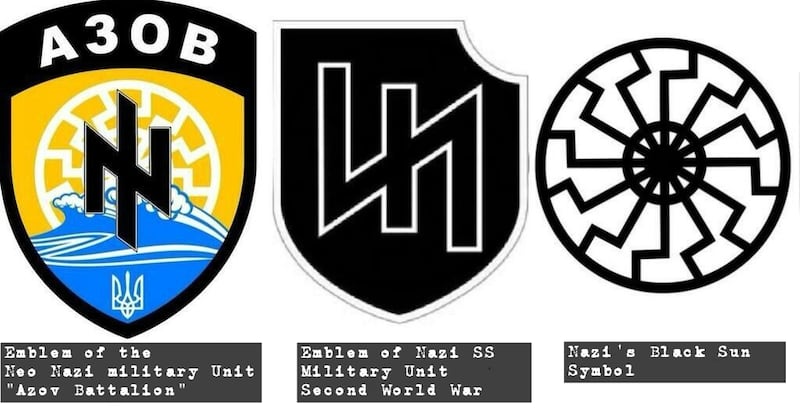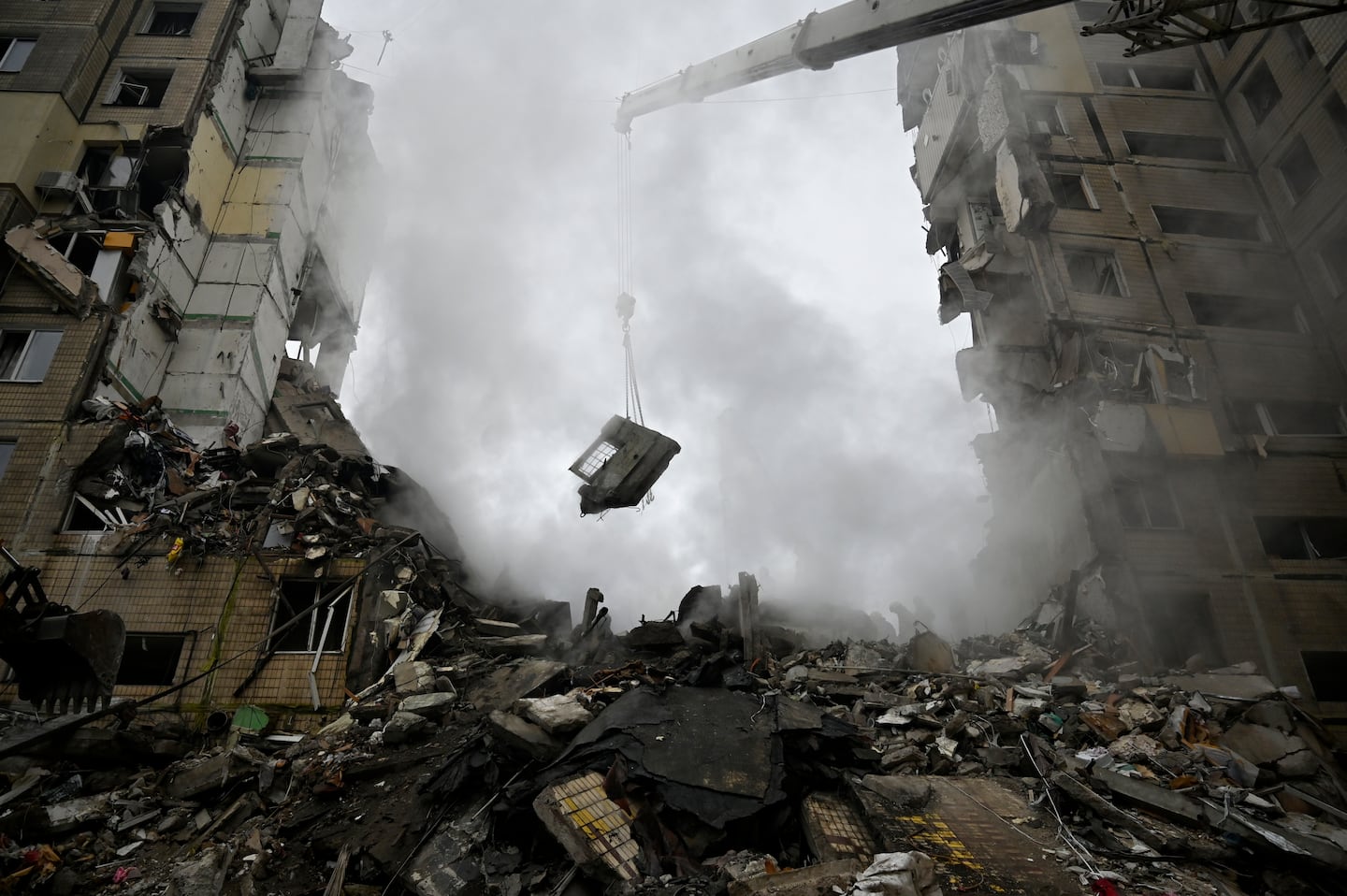Editor’s note: On February 22, 2022, Russia illegally invaded Ukraine.
The United Nations General Assembly voted against Russia’s invasion by a vote of 141 countries to 5.
Azov Battalion supporters made up less than 2% of the voting public in Ukraine’s most recent elections. Populations with extreme right views exist in many countries, including Aotearoa and Russia.
The views expressed in the story, are solely those of the author.
-
OPINION: Can you honestly say you know what you are supporting? When you show solidarity for a cause, can you hand on heart accept everything attached to that motive, even the ugly parts? Let's find out.
New Zealand has not been devoid of humanitarian horrors. When Aotearoa was being colonised the country spent the better part of 29 years, with fighting between Māori and English during the land wars.
Kiwis, including Māori, have participated in most theatres of war since the 19th century. This includes the Boer War, World War I and World War II, all horrific in their own ways, and more recently enduring one of the worst mass shooting terror attacks the world has ever seen in the Christchurch mosque massacres.
It seems to me these days people have short memories about the horrors of humanity, don’t respect the weight of history or disrespect the sacrifice their ancestors made for them.
This brings me to the problem with the evolving conflict in eastern Europe.
Recently, Facebook was fingered for suddenly allowing commenters to praise the Azov Battalion over its enthusiastic members fighting for Ukraine against invading Russians.
The so-called battalion formed as a voluntary militia in 2014. Later that year it was incorporated into the National Guard of Ukraine, which is government-funded. Today the battalion is fighting Russians, reportedly valiantly. But the Azov Battalion is known for its neo-nazi rhetoric and nazi symbolism stitched on their uniforms. The battalion is cited approvingly in Christchurch terrorist Brenton Tarrant's manifesto and one of the few copies that exist of it in print is in Ukrainian.
Later in 2016 Azov Battalion leader Andriy Bilestsky also started a far-right political party called the National Corps Party. This party promotes neo-nazism, neo-fascism, Ukrainian nationalism, ultranationalism, hard euroscepticism, economic nationalism, right-wing populism, anti-Russian sentiment and 'Third Position' as their core ideology.
In the 2019 elections, the National Corps Party won 315,000 votes or 2.15% of the national vote of Ukraine. Thankfully, that would be the equivalent of a quarter of Auckland’s population voting pro-neo-nazi.
Ukraine is not the only country in Europe that has had far-right nationist parties participate in politics. The vile philosophy has spread to political parties in Europe with connections to fascists and Nazis in places such as Austria, Hungary, Italy, Romania, and France.

Māori should be outraged and insulted that Facebook has been so despicable as to allow a nazi group to be celebrated.
Māori sent an estimated 900 Māori men in the 28th Māori Battalion to Europe and North Africa to fight against the nazi regime of Germany, which threatened to invade and conquer the world.
The Māori and other New Zealanders' sacrifices made during the many horrible situations that we have endured shouldn’t be tainted by the thoughtless acts of a social media giant.
Facebook is trying to manipulate and propagate a narrative to present the idea that ‘Ukraine good, Russia bad’ for more clicks and engagement. But it’s more complex than that.
This is not about taking sides but rather a reflection on why knowing history is important before jumping on the next trending social media narrative.
I am not innocent in this because I changed my profile picture to show I was sending positive thoughts to the French people after the Charlie Hebdo attack and also after the Christchurch Mosque shooting.
I look back at this, and it makes us social media users look lazy, disconnected, entitled and disrespectful. To think that something as meaningless as a profile picture change would give an impression of doing something thoughtful and achieving something meaningful!
I think we can agree that we all don’t want World War III to ever start and in no way do I claim to support what is happening to Ukraine. It’s a dangerous and complex situation that could spark a worldwide conflict any day now if things keep escalating.
But Ukraine, though under attack, is not a country that can be absolved of its past easily even as it professes to be an innocent party fighting for its freedom against the absolution of Russia’s invading forces. It doesn’t take long to find out that Ukraine’s past is just as tainted as any other.
Pre-dating the Second World War by 20 years the Independent Ukrainian state that was established after World War I and the Russian Revolution was invaded by Russian and Bolshevik armies. This conflict became known as the ‘Civil War’, which nurtured pogroms and hundreds of anti-Jewish riots across the state, resulting in the deaths of an estimated 100,000 Jews.
A report from National Geographic says that during World War II 100,000 Ukrainians joined German police units providing key assistance during the massacre of an estimated 900,000 Jews. These people were also responsible for one of the four largest mass killings during that war of 33,771 Jews killed over two days in Babi Yar.
Now Ukraine is openly supporting a group with the same principles and beliefs as nazis, and which fostered the Australian Christchurch terrorist Brenton Tarrant on his racist pilgrimage across Europe, the man who killed 51 peaceful Muslims on their day of worship and cited Azov in his manifesto.
I wonder how many people actually knew this and would they still be so supportive of Ukraine?
What is worrying is there could be a political vacuum at the end of this conflict that could give a major popularity boost for the Nazi sympathisers. We should be wary of the Azov Battalion’s integrity in fighting for Ukraine and especially wary of what the militia’s self-interest is while passively promoting its core principles.
I want my people to be aware of what they are representing when deciding to change their Facebook profile images to the colours of Ukraine.
Ukraine has a bloody history it acknowledged only after the fall of the Soviet Union in 1991. It now funds and arm with military equipment the Azov Battalion.
What I have learned so far is to never blindly dive toward a call to action until I understand each side of the situation and know the history leading up to this point. I’m not saying that we shouldn’t support Ukraine’s bid to defend itself against the Russian invasions. But you won’t find me wearing colours of a country that has made a deal with a known evil.
Our ancestors, our whānau, stood in the face of danger. They put their lives on the line, making the ultimate sacrifice contributing to the allied forces' effort (Russia included in World War II, don't forget) fighting this dangerous ideology that could have destroyed us all. Now, faced with the possibility of a third world war, nazism has reared its ugly face once again but this time we kind of support it.
Think about that.


